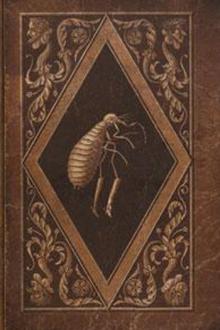Master Flea by E. T. A. Hoffmann (drm ebook reader .txt) 📕

Description
Ernst Theodor Amadeus Hoffmann was a contemporary of Ludwig von Beethoven: a composer himself, a music critic, and a late-German-Romantic-movement writer of novels and numerous short stories. His incisive wit and poetic imagery allow the reader to peer into the foibles of society and the follies of human psychology. (In fact, Hoffmann’s wit may have gotten him into a bit of legal trouble, as parts of Master Flea were censored and had to be reworked when authorities disliked certain satirical criticisms of contemporary dealings of the court system.)
Join gentleman bachelor Peregrine Tyss as his life as a recluse takes a twist, when he gains an epic advantage of tiny proportions. Part proto-science-fiction and part Romantic fantasy, Master Flea follows the fate of a mysterious, captivating princess at the intersection of numerous suitors, human and insect. Like a lesson from a fable or a tale of classical mythology, Hoffmann’s fairy-tale allegory shows how seeking forbidden knowledge can poison the soul, and how following the heart can heal it.
Read free book «Master Flea by E. T. A. Hoffmann (drm ebook reader .txt) 📕» - read online or download for free at americanlibrarybooks.com
- Author: E. T. A. Hoffmann
Read book online «Master Flea by E. T. A. Hoffmann (drm ebook reader .txt) 📕». Author - E. T. A. Hoffmann
“The genius, Thetel, now thought of departing, as he had much to do at Samarkand before night, and cast a farewell look at the princess, when he seemed as if fixed by magic to the spot, and gazed on the fair one with deep emotion. Suddenly a thought struck him. Instead of going on farther, he took the princess in his arms, and rose with her high into the air, at which time two philosophers—one of whom it should be said was myself—were observing the course of the stars from the gallery of a lofty tower. They perceived high above them the genius, Thetel, with the fair Gamaheh, and at the same moment there fell upon one—but that is nothing to the present matter. Both magicians had recognised the genius, but not the princess, and exhausted themselves in all manner of conjectures as to the meaning of this appearance, without being able to get at anything certain, or even probable. Soon after this the unhappy fate of the princess became generally known in Famagusta, and now the magicians knew how to interpret the vision of the genius with the maiden in his arms. Both imagined that the genius must certainly have found some means of recalling the princess into life, and resolved to make inquiries in Samarkand, where, according to their observations, he had manifestly directed his flight. But in Samarkand all were silent about the princess; no one knew a word.
“Many years had passed; the two magicians had quarrelled, as it will happen with learned men—and the more learned the oftener—and they only imparted to each other their most important discoveries from the iron force of custom. (You have not forgotten, Pepusch, that I myself am one of these magicians.) Well, I was not a little surprised at a communication from my colleague, which contained the most wonderful—and at the same time the happiest—intelligence of the princess that could be imagined. The matter was thus: by means of a scientific friend in Samarkand, my colleague had obtained the loveliest and rarest tulips, and as perfectly fresh as if they had been just cut from the stalk. His chief object was the microscopic examination of the interior portions, and in fact, of the petal. It was with this view that he was dissecting a beautiful tulip, and discovered in the cup a strange little kernel that struck him prodigiously, but how great was his astonishment when, on applying his glass, he perceived that the little kernel was nothing else than the Princess Gamaheh, who, pillowed in the petal of the tulip, seemed to slumber softly and calmly.
“However great the distance that separated me from my colleague, yet I set off immediately, and hastened to him. He had in the meantime put off all operations, to allow me the pleasure of a sight first, and perhaps, too, from the fear of spoiling something if he acted entirely from himself. I soon convinced myself of the perfect correctness of my colleague’s observations, and, like him, firmly believed that it were possible to snatch the princess from her sleep, and give her again her original form. The sublime spirit, dwelling within us, soon let us find the proper method, but as you, friend Pepusch, know very little—in fact nothing at all—of our art, it would be quite superfluous to describe to you the different operations which we went through to attain our object. It is sufficient if I tell you that by the dexterous use of





Comments (0)